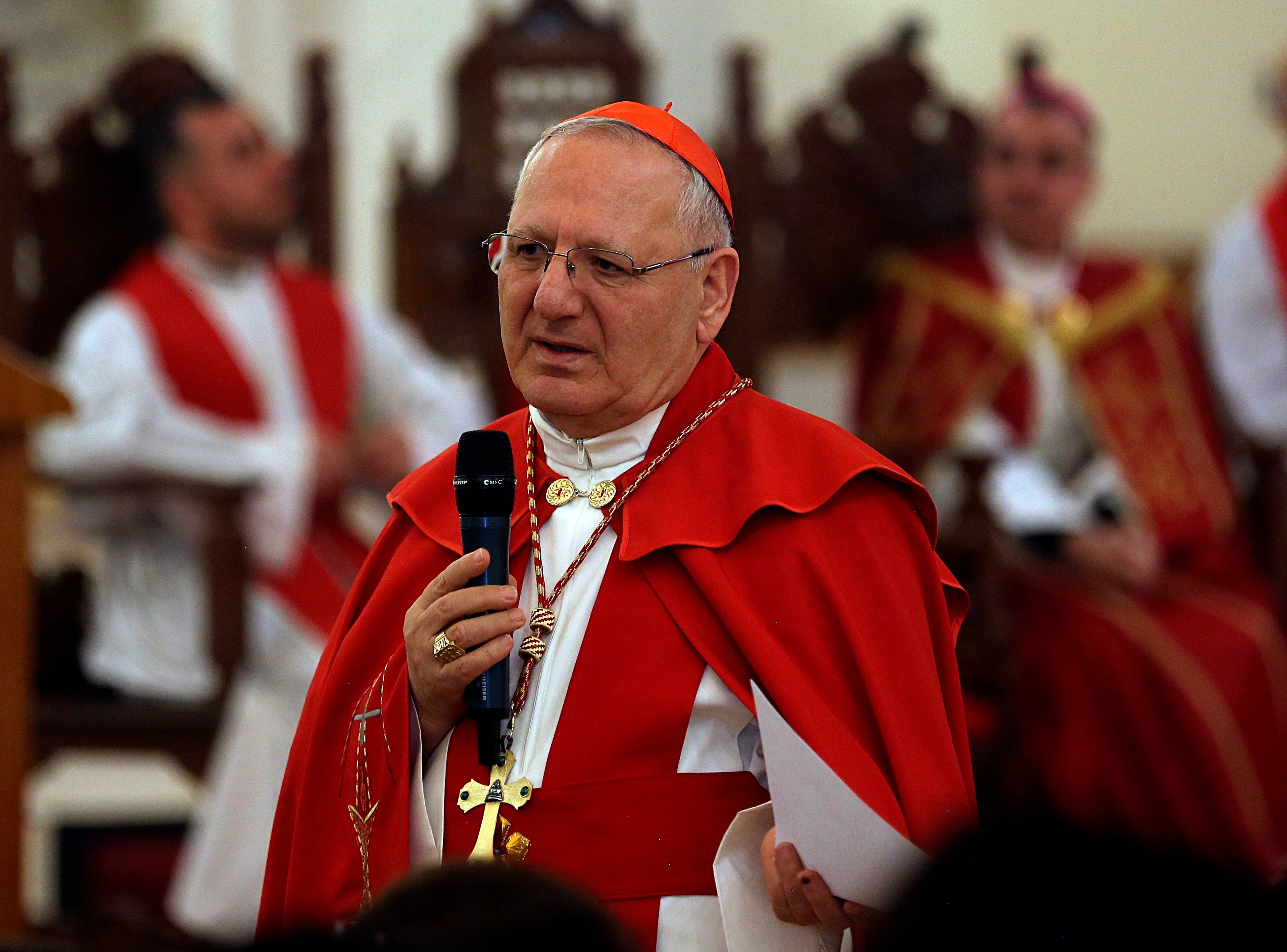Patriarch: Pope to meet Iraqi Shiite leader Sistani in Iraq
Iraq’s top Catholic official says a deadly suicide bombing in Baghdad hasn’t thwarted Pope Francis’ plans to become the first pontiff to visit the country

Your support helps us to tell the story
From reproductive rights to climate change to Big Tech, The Independent is on the ground when the story is developing. Whether it's investigating the financials of Elon Musk's pro-Trump PAC or producing our latest documentary, 'The A Word', which shines a light on the American women fighting for reproductive rights, we know how important it is to parse out the facts from the messaging.
At such a critical moment in US history, we need reporters on the ground. Your donation allows us to keep sending journalists to speak to both sides of the story.
The Independent is trusted by Americans across the entire political spectrum. And unlike many other quality news outlets, we choose not to lock Americans out of our reporting and analysis with paywalls. We believe quality journalism should be available to everyone, paid for by those who can afford it.
Your support makes all the difference.Iraq’s top Catholic official said Thursday that a deadly suicide bombing in Baghdad hasn’t thwarted Pope Francis’ plans to visit, and he confirmed the pontiff would meet with the country’s top Shiite cleric, Ali al-Sistani, in a significant highlight of the first-ever papal trip to Iraq.
The Chaldean patriarch, Cardinal Louis Raphael Sako, provided the first details of Francis’ March 5-8 itinerary during a virtual news conference hosted by the French bishops' conference. The Vatican has confirmed the visit, but it still could be called off given the coronavirus pandemic.
The trip is aimed primarily at encouraging the country’s beleaguered Christians who faced decades of discrimination by the Muslim majority before being targeted relentlessly by Islamic State group militants starting in 2014.
“What we Christians expect (from the pope's message) is comfort and hope," Sako said. “We have always been persecuted and we have paid for our faith to Christ and the Gospel with our blood, not only in the past but also recently.”
But the first visit by a pope to Iraq also has a strong interfaith component. Francis is scheduled to travel to Najaf on March 6 to meet with al-Sistani, one of the world’s leading Shiite leaders, and to host an interfaith meeting that same day in the ancient city of Ur, the birthplace of the prophet Abraham, according to Sako.
Francis has spent years trying to forge improved relations with Muslims. He signed a historic document on human fraternity in 2019 with a prominent Sunni leader, Sheikh Ahmed el-Tayeb, the grand imam of Al-Azhar, the seat of Sunni learning in Cairo.
Brother Amir Jaje, an Iraqi Dominican who is an expert on Shiite relations, said he hoped Sistani would also sign onto the fraternity document, which calls for Christians and Muslims to work together for peace.
Sako said the message of peace was particularly important for Iraqis of different faiths: “As (Francis) always says, we are all brothers and sisters, part of the same family.”
Francis' meeting with Sistani will be enormously symbolic for Iraqis, especially its Christians, for whom the encounter will mark a turning point in their country s often fraught interfaith relations.
Christian communities that date to the time of Christ were run over by IS militants, and thousands of people were forced to flee in search of safety and a better life. The Vatican has called for Iraqi authorities and the international community to provide the security, economic and social conditions to allow them to return, arguing that Christians are a small but crucial part of Iraqi society.
The meeting’s implicit message of coexistence would resonate among members of the Christian minority, who have expressed fears of demographic change following liberation from the Islamic State group. Most blame militia groups for erecting checkpoints near their villages and homes, deterring many from returning.
Sistani is a powerful religious figure whose opinion holds sway over the predominately Shiite street. He rarely intervenes in political affairs, but his 2014 fatwa was instrumental in the creation of Shiite militia groups who fought the Islamic State alongside Iraqi forces. In 2019, his sermon led to the resignation of Prime Minister Adil Abdul-Mahdi amid pressure from anti-government protests.
The Vatican has confirmed Francis’ intention to go to Iraq and made all the pre-trip arrangements, including sending front teams to Iraq to work out logistics and security, and accrediting media to travel on the papal plane.
A rare twin suicide bombing last week, however, has sparked fears of an IS resurgence. The attack struck a busy Baghdad commercial center, killing 32 and wounding over 100. It was the deadliest attack to strike the capital in years.
Sako dismissed the significance of the bombing on the overall security situation in Iraq and said, “There is no risk for the pope."
However, the coronavirus pandemic could force the trip to be suspended at any minute.
“The risk is not for him, it’s for others,” Jaje said, noting that while Iraq’s daily confirmed caseload is far lower than in European countries, it’s testing capacity is also lower. Francis and the Vatican delegation will have been vaccinated by the time of the trip.
___
Samya Kullab contributed from Baghdad.